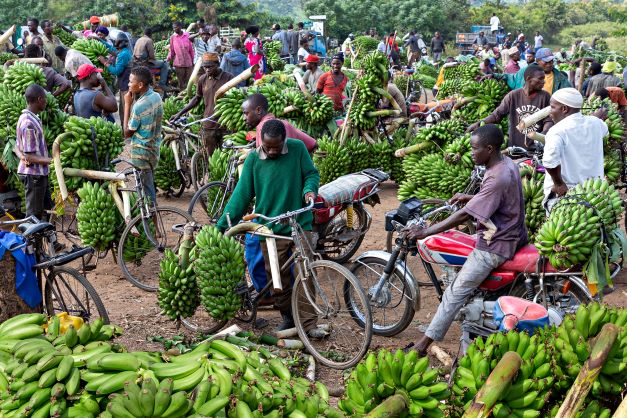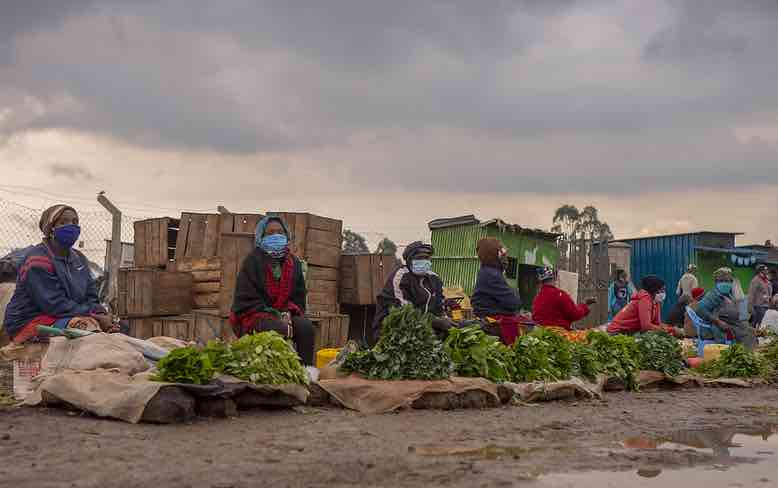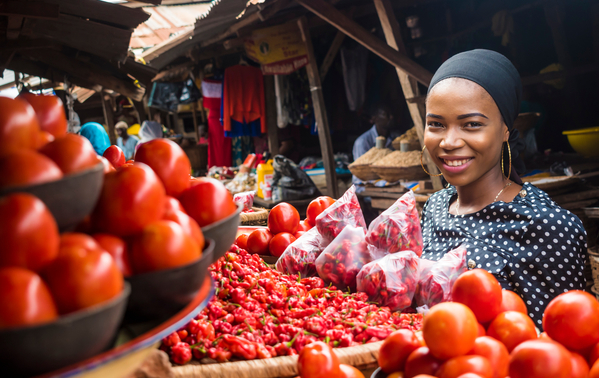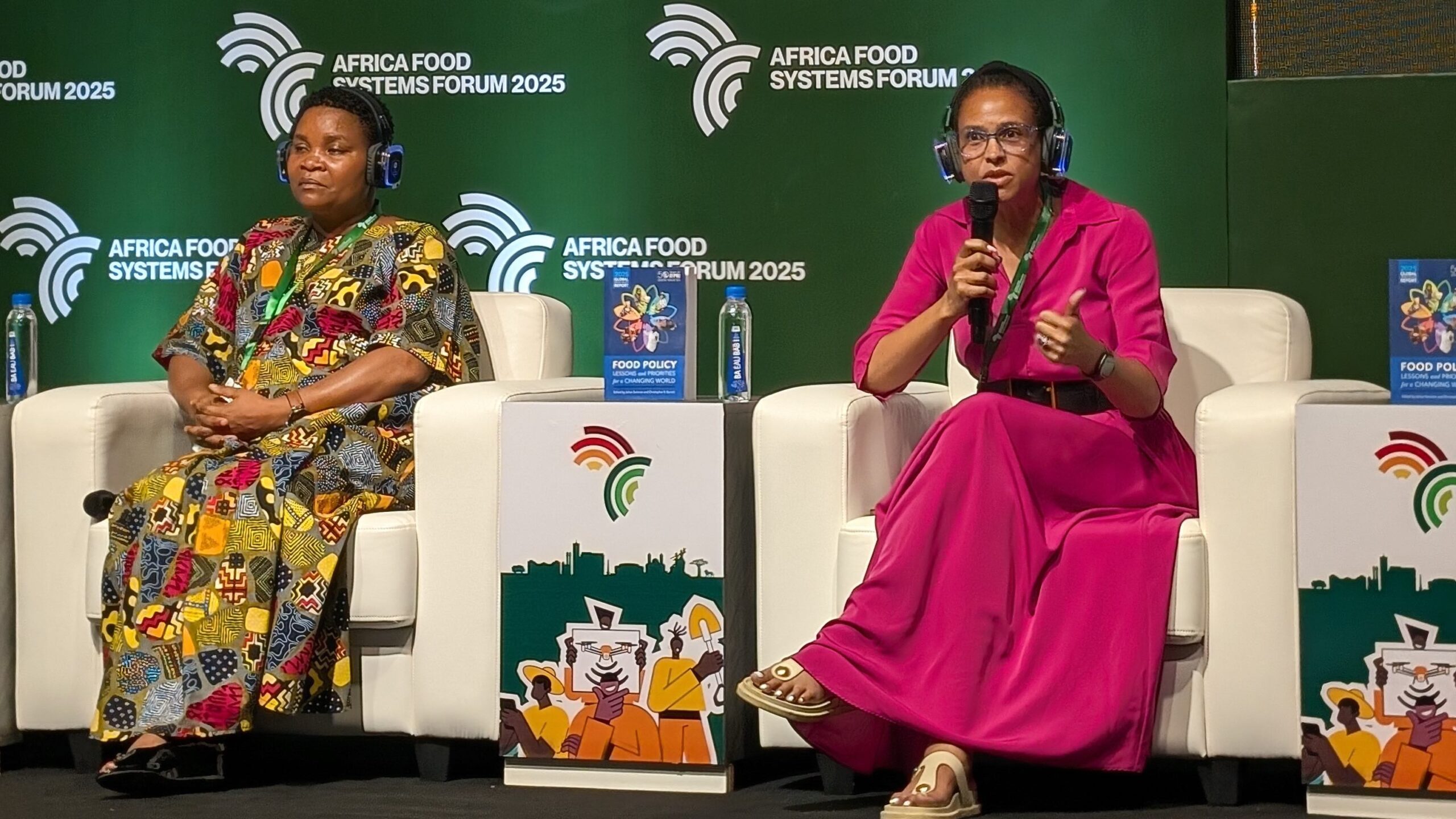IFPRI’s 2025 Global Food Policy Report (GFPR) focuses on lessons learned over the institute’s 50 years of existence and how these can be applied to today’s challenges of transforming food systems to be sustainable, healthy, and equitable. Its insights are particularly valuable for Africa, which has tremendous potential for sustainable agricultural growth, yet faces many obstacles.
This was the topic as IFPRI and the Alliance for a Green Revolution in Africa (AGRA) sponsored a 2025 GFPR launch event September 3 during the 2025 Africa Food Systems Forum in Dakar, Senegal. Building on the 2025 Kampala Declaration by African countries laying out a series of goals for agrifood system transformation, the session brought together African ministers, policymakers, researchers, and food systems leaders to reflect on past policy choices and chart a course for the future.
The Kampala Declaration: A turning point
In his opening address, Jakaya Mrisho Kikwete, former President of Tanzania, declared that Africa must transform itself by building food systems that are inclusive, resilient, and just. “Africa will take charge of its own transformation, setting ambitious targets, holding itself accountable, and building the partnerships needed to achieve them,” he said.
Kikwete emphasized that food systems are central to Africa’s economy, health, and society, and called for bold strategies to confront climate shocks, urbanization, and market disruptions, placing youth and women at the heart of the solution. “We must reorient entire systems so they serve all our people, not just the well-served,” he said.
Providing equal access for women farmers, he noted, can increase yields by up to 30%, while empowered youth bring innovation and energy to agriculture. “The Global Food Policy Report, being launched today,” he said, “offers valuable evidence and perspectives that can help guide this work. I commend IFPRI and its partners for contributing to the knowledge base that underpins our decisions. But let us be clear: knowledge must lead to action. And action must lead to impact.”
Youth innovation: From village to vision
Esther Kimani, founder and CEO of Farmer Lifeline Technologies, shared her journey from rural Kenya to building an artificial intelligence-powered, solar-powered device that helps smallholder farmers detect crop diseases and pests early and can reduce crop losses by up to 30%. In 2024, she won the prestigious Africa Prize for Engineering Innovation, receiving £50,000 ($66,000) to scale production and distribution of the tool. Her story stands out in a region where nearly 60% of African startups fail within their first five years due to limited access to capital, mentorship, and enabling infrastructure. “Most youth have the desire to solve problems, but the playing ground is not level,” said Kimani, 29, emphasizing the need for STEM education, patient capital, and supportive ecosystems to help youth-led agribusinesses thrive.
50 years of food policy: GFPR 2025 insights
Johan Swinnen, IFPRI Director General, reflected on the institute’s five decades of progress and emerging challenges. While poverty and hunger declined between 1975 and 2015, the past decade has seen reversals, especially in Africa, where acute hunger has tripled. “We’ve gone from progress to fragility,” Swinnen warned, citing conflict, climate shocks, and displacement as key contributors to rising food insecurity.
Shifting trade dynamics and declining research and development investment in wealthy nations offer opportunities for Africa to scale up its own trade and technology efforts, he said. The GFPR outlines six priorities for countries to transform food systems: Resilience and inclusion, improved nutrition, technology and AI, private sector engagement, public sector efficiency, and smarter funding.
Steven Were Omamo, IFPRI Africa Director, presenting the GFPR Africa chapter, reviewed the evolution of the continent’s food systems over the past five decades. While Africa has made significant strides, he said, persistent structural challenges must be addressed to unlock inclusive and resilient transformation. Key details from the report show a mixed picture over the last 50 years:
- Agricultural productivity growth has doubled since the 1980s but remains well below the global average.
- Food security improved, yet import dependency poses risks, with Africa’s food imports standing at $70 billion in 2024 vs. $35 billion in exports.
- Malnutrition persists despite reductions in undernourishment.
- Food policy has evolved from general neglect to a variety of implementation-focused frameworks.
“Africa’s story is one of diversity, progress in some areas, persistent gaps in others,” Omamo said. He called for rural industrialization, decentralized innovation, digital tools, and stronger trade integration under the African Continental Free Trade Area (AfCFTA).
Claudia Ringler, Director of IFPRI’s Natural Resources and Resilience Unit, closed the GFPR presentations with an urgent message: Inclusion is not optional, it’s essential; both a moral imperative and an economic necessity.
Ringler focused on gender, noting that while 76% of women in sub-Saharan Africa are engaged in agrifood systems, they face widening gaps in access to resources, finance, digital tools, and decision-making. “We are seeing regression: 11.2 million more women than men are food insecure in sub-Saharan Africa,” she said.
Ground-level voices: From policy to practice
A panel of experts and practitioners shared insights from the field, bringing voices of farmers, youth, and community leaders into the conversation. Their reflections emphasized the need for grounded, inclusive, and actionable strategies to transform Africa’s food systems.
Michelle Kagari, Global Director, Governmental Relations and Policy, One Acre Fund, Kenya—which offers financing and training to smallholders—said that profitability is essential to attracting youth and women into agriculture. Serving over 5.5 million smallholder farmers, her organization generated $400 million in new assets last year alone. “Policies must emerge from the ground up,” she said. “They must make agriculture viable and rewarding.”
Elizabeth Nsimadala, President of the Eastern Africa Farmers Federation and former President of the Pan African Farmers’ Organization, spoke on behalf of 25 million smallholder farmers—60% of whom are youth and women. She urged governments, development agencies, researchers, and private sector actors to treat farmers as equal partners in shaping and sustaining agricultural ecosystems. This means involving them not just as beneficiaries, but as co-creators in policy design, research, extension services, and investment decisions. “Good policies on paper mean nothing if the end users are not involved,” she emphasized, underscoring the need for inclusive, farmer-led approaches to ecosystem management and agricultural transformation.
Ibrahima Diouck, Chief of Staff to Senegal’s Minister of Agriculture, outlined concrete steps to correct longstanding inequalities in agrifood systems, including quotas for women in input distribution, expanded access to land, and targeted financing through banking partnerships. “We are bringing together all possible efforts and energies to ensure that every segment of the population can contribute.”
Patrick Karangwa, Director General of Agriculture Modernisation, Rwanda Ministry of Agriculture, emphasized the importance of coordination and accountability in agrifood systems. This includes institutionalized monitoring and evaluation systems, backed by embedded technical support. “We don’t just meet and greet,” he said. “We rank, we monitor, and we ask why targets weren’t met.”
Conclusion
Overall, speakers affirmed the importance of Africa continuing to lead its own agrifood systems transformation. From high-level commitments such as the Kampala Declaration to grassroots innovations and field-level insights, the message is consistent: Inclusive, resilient, and accountable food systems are not just aspirational, they are achievable. Speakers agreed that policies must be grounded in data and lived realities, and that investments must reach those most in need. “We must reorient entire systems, so they serve all our people, not just the well-served,” Kikwete said.
Sokhna Sall Seck is a Communications Specialist with IFPRI’s Development Strategies and Governance Unit based in Dakar, Senegal.




